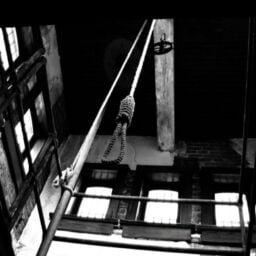INTRODUCTION
Crime refers to wrongs done by human beings which have a detrimental impact on the whole society at large. A very common statement that is used to explain crime is ‘an act capable of being followed by criminal proceedings.
The essentials of crime include:
- Mens Rea – it means a “guilty mind” which refers to one’s intention to commit a crime when talking in respect of criminal law. It means that the accused must have had full knowledge of his acts and their consequences to be held liable for the criminal It is a mala fide and criminal state of the mind.[i] This is based on the legal maxim ‘Actus Non Facit Reum Nisi Mens Sit Rea’ which means an act does not make one guilty unless there is criminal intent.
- Actus Reus – it means “a guilty act”. It refers to a physical act or omission which causes injury to the
- Both Mens Rea and Actus Reus have to be proved to constitute a crime. To prove the guilt of the accused, his act coupled with the presence of intent is [ii]
Chapter 4 of The Indian Penal Code, 1860 provides several general exceptions from Sec. 76 to Sec. 106 which protect a person from being liable for criminal acts. One such defence is INFANCY that is provided under Sec. 82 and Sec. 83 of the Indian Penal code.
Another thing that may be mentioned is that according to Sec.105[iii] of the Indian Evidence Act, the burden to prove the existence of circumstances that fall under the general exception of IPC is on the accused.
PROVISIONS RELATED TO INFANCY
The Merriam Webster dictionary defines infancy as a period of early childhood or legal status of an infant.
Legal Provisions:
- 82[iv] says “Act of a child under seven years of age.—Nothing is an offence which is done by a child under seven years of age.”
This means a child below the age of 7 years can never be held liable for any criminal act whatever the case may be. For Instance, if a 5-year-old boy stabs his sister using a knife, the boy will not be held liable for his actions under IPC.
Such a defence is given as it is believed that any child below the age of 7 years is not capable of assessing the nature of the situation, his actions and their consequences. There is a lack of understanding on the part of the child which eliminates the existence of Mens Rea from the act. It is based on the legal maxim ‘Doli Incapax’ which means incapable of doing any harm and hence, protects the child from being held guilty.
- 83[v] says that “Act of a child above seven and under twelve of immature understanding.—Nothing is an offence which is done by a child above seven years of age and under twelve, who has not attained sufficient maturity of understanding to judge of the nature and consequences of his conduct on that occasion”.
According to this section, a child above the age of seven years is liable for the offence committed by him only if he was aware of the nature and consequences of his action. But if the child is not mature enough then he is not criminally liable for the act done.
This is based on the legal maxim ‘Doli Capax’ which means capable of wrongdoing. A child aged between 7-12 years is considered to be someone who can commit a crime but if it is proved that he did not have enough maturity to understand assess the situation and be aware of his action and its consequences then it will protect him from the criminal liability.
LANDMARK JUDGEMENTS
- Marsh Loader[vi]
A child was accused of theft of a stick from the complainant’s property but was released on the ground that he was below 7 years of age and hence could not understand his actions and the consequences so could not be held guilty.
- Hiralal Mallick State of Bihar[vii]
In this case, Hiralal Mallick was a 12-year-old who along with his two elder brothers was convicted by the trial court under Sec. 302 IPC that deals with the punishment for murder and was sentenced for life for the murder of the deceased who had a fight with their father. On appeal to the High court, it directed the conversion of the convictions from Sec. 302 to Sec. 326 IPC which deals with voluntary causing of grievous hurt by dangerous weapons or means and the appellant’s sentence was reduced to 4 years owing to his young age.
- Ulla Mahapatra The King[viii]
The appellant, Ulla Mahapatra, a boy around 12 years old remarked that he would cut the victim into bits and pieces and then actually struck the victim on the left side of his chest using a Kathi which ended up killing him. The facts, circumstances and the evidence of the case proved that the appellant was aware of his actions and had sufficient maturity to know the nature and consequences of the same and hence was held liable for Murder. Owing to his tender age, instead of punishing him with a life sentence, he was sent to a reformatory home for five years. The session judge took this decision under the powers conferred on him by Sec. 8 of the reformatory schools act.[ix]
- Abdul Sattar The Crown, 1947[x]
In this case, two boys of ages below 12 years were accused of breaking open the locks of two premises to commit a theft. Their very act of breaking into the victim’s property and the facts and circumstances of the case proved that they possessed sufficient understanding of their actions and hence were held liable for committing theft.
- Kakoo The State Of Himachal Pradesh, 1976[xi]
In this case, Kakoo, a child of 13 years of age was convicted of raping a 2-year-old and was sentenced to 4 years of rigorous imprisonment. But on the grounds of Sec. 82 and Sec. 83 of IPC, it was argued that a child should not be treated in the same manner as a mature adult. And considering his young age, it was certain that a long prison term would turn him into an obdurate criminal. Taking into account the circumstances of the case, The High court of Himachal Pradesh reduced his punishment to one year of rigorous imprisonment (being detained separately from the adult prisoners) and a fine of Rupees 2000 payable to the victim’s mother, which on default would lead to an extension of the rigorous imprisonment for 6 months.
It should be noted from the analysis of the above case laws that the children who are held liable for committing a crime under Sec. 83 are not treated the same way the adults are treated when it comes to punishment. It is usually at the discretion of the judge hearing the case that decides what kind of punishment should be given to the child such that it does not mar their future and brings a positive change in their behaviour and thinking so that they can lead a socially and morally purposeful life ahead. Such punishments include a reduced prison sentence in detention centres which act like reformatory homes (Guided by The Reformatory Schools act, 1897), fine payment, admonition, order to do community service for a particular period and so on.
CONCLUSION
When it comes to minors below the age of 7 years, it is assumed that they don’t possess the required maturity to be held criminally liable for an act, but when it comes to children aged between 7-12 years, if the facts and circumstances prove sufficient knowledge, intent and understanding on the part of the minor, he will be held guilty for the act done and suffer the punishment as decided by the jury.
Author(s) Name: Siya Jindal (Vivekananda Institute of Professional Studies
References:
[i] Sylvine, Mens Rea Actus Reus- Essentials of a Crime, IPLEADERS, (Nov. 26 2021) https://blog.ipleaders.in/mens-rea-actus-reus-essentials-crime/
[ii] Kousini Gupta, Actus Non Facit Reum Nisi Mens Sit Rea – Legal Maxim, LAW TIMES JOURNAL, (Nov. 26 2021) https://lawtimesjournal.in/actus-non-facit-reum-nisi-mens-sit-rea/
[iii] Indian Evidence Act, 1872, Sec. 105
[iv] Indian Penal Code, 1860, Sec. 82.
[v] Indian Penal Code, 1860, Sec. 83.
[vi] Marsh v. Loader, 1863, 14 CBNS 535.
[vii] Hiralal Mallick v. State of Bihar, 1977 AIR 2236.
[viii] Ulla Mahapatra v. The King, AIR 1950 Ori. 261.
[ix] Reformatory Schools Act, 1897, Sec. 8.
[x] Abdul Sattar v. The Crown, 1947.
[xi] Kakoo v. The State Of Himachal Pradesh, AIR 1976 SC 1991.
















